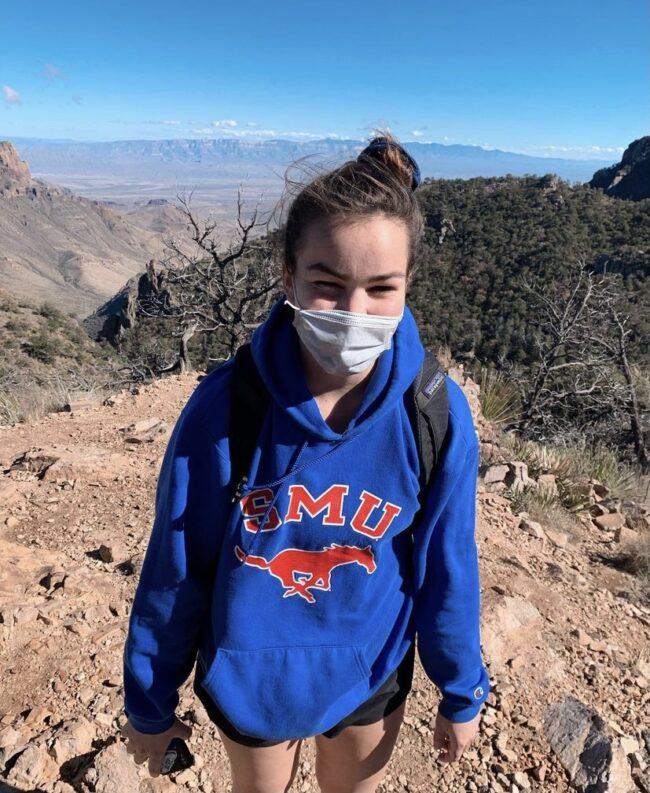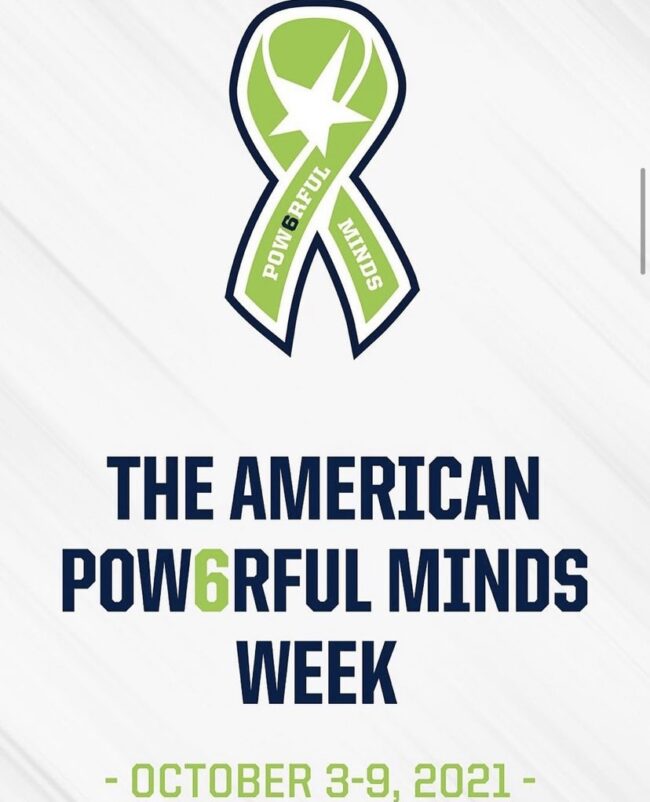Eat, Sleep, Row, Repeat. That’s how Reagan Spence would describe her typical day.
The SMU Women’s rowing team athlete’s morning starts early with 5 a.m. weights and ends late with 7 p.m. night class.
From the moment she opens her eyes in the morning until she closes her eyes at night, Spence’s days are jam-packed.
She is always on the go and always busy.
“I come home and I’m exhausted. But I have a million things of homework that I need to get done. And I’m having the internal debate right now like, oh, okay, I need to do this and this but I also need sleep,” Spence said.
At the end of the day, Spence is not only physically exhausted but is mentally drained. But some nights, as soon as she puts her head on her pillow, anxious thoughts of grueling 6K distance rows and psychology tests keep her up all night. Spence’s exhaustion, though extreme, is not uncommon for collegiate athletes.

A 2015 NCAA survey found 30% of participating student-athletes reported feeling seriously overwhelmed during the past month. A third struggled to find energy for other tasks because of the physical and psychological demands of their sport. Nearly 25% felt mentally exhausted.
With the constant pressure to be in peak physical shape, as well as performing in the classroom, collegiate student-athletes often feel overworked and overwhelmed.
Despite these feelings, many student-athletes suffer in silence.
As a member of the SMU volleyball team, I can say that one thing this can be attributed to the messages ingrained in the roots of sports culture. From a young age, athletes are taught to “push through” and “not be a quitter.” These common refrains surface in pep talks, locker room debriefs, and conversations between athletes.
Minor issues, like a missed class here or a bad practice there, soon snowball into major problems, creating an avalanche. Spence noted that she personally has experienced the first-hand effects of this chain reaction.
“I was majorly depressed, coming into the fall of 2020. And I got just in a super unhealthy spot mentally and struggled to pull myself out of it,” Spence said.
Although Spence was physically in the best shape of her life, training with a team that later that year would place 11th at the NCAA Division One Championships, she was suffering mentally.
None of Spence’s coaches or teammates even knew until she decided to take a step back from the team to focus on her mental health. She took a three-month hiatus that fall semester.
“They were kind of blindsided on what to do, how to help, and understanding what I was going through,” Spence said.
Spence is not alone in her struggles. Her fight with depression is far too common and rarely spoken about in the world of elite athletes.
According to the British Journal of Sports Medicine, “34% of elite athletes suffer from anxiety and depression. In contrast, the average prevalence of mental illnesses for adults is only 20%.”
This alarming statistic has opened up the conversation about the true impact mental health has on athletes.
Carrie Stewart, Director of Sports Psychology at SMU, believes that mental health is just as important as physical health.
“I think it’s just as important and a little bit more important, in my opinion, to stay mentally healthy,” Stewart said.
If mental health is just as important as physical health, then why is mental health training not heavily emphasized?
One Word: Stigma.
The general consensus is that since elite athletes are physically healthy, they must be mentally healthy as well.
The way professional athletes are idolized in the media, oftentimes being portrayed as superior and “god-like” figures, only further contributes to the stigma behind mental health in elite athletes.
In order to reduce this stigma, many athletes have come forward and been open about their mental health struggles and encouraged others to do the same.
One organization on SMU’s campus has made a significant impact by dedicating a week twice a year towards conversation about mental health in student-athletes.
In early October, SMU’s Student-Athlete Advisory Committee (SAAC) partnered with the American Athletic Conference to launch Powerful Minds week, seven days dedicated to reducing the stigma behind mental health in student-athletes.
Addi Iliria, a member of SMU’s SAAC executive board says the week is meant to equip the athletes with the tools to care for their mental health.
“Powerful minds is a week that our conference sets up during the fall and spring, in order to give student-athletes a platform to express mental health awareness and the resources that they have within the conference,” Iliria said.

Powerful Minds week encourages conversations about mental health by having student-athletes share their tips and tricks to reduce anxiety and talk about activities that help them cope with the stresses of their busy lives.
Each day of Powerful Minds week, a student-athlete from a different team took over the SMU SAAC Instagram account and shared their story along with some of their favorite hobbies outside of their sport.
Iliria hopes that the week encouraged student-athletes to be more open to talking about mental health on their teams.
“I think that it’s important to express that it’s okay to not be okay,” Iliria said.
During Powerful Minds week, organizers also promoted the available counseling resources SMU has available for student-athletes.
Spence expressed only having positive experiences using the counselors through SMU but felt like there was a lack of mental health awareness training with the coaches and facility.
“My coaches had never dealt with the kinds of things that I was dealing with last year. I think if they had some kind of formal training on how to spot an athlete going through something, it would be beneficial,” Spence said. “It was almost too late for someone to find out what was going on with me. And it was kind of like I almost got caught. And that’s how I was helped because someone caught me.”
For student-athletes like Spence or myself, conferences and workshops hosted by trained professionals would be a huge benefit. It would not only train staff members of SMU’s athletic programs to recognize the early signs of mental illnesses, but it would also create a closer-knit community in each team, encouraging open and constant communication between athletes and coaches.
Stewart believes hiring a full-time mental strength staff would provide significant benefits to student-athletes.
“Hiring a full-time mental strength staff, to create and develop a program would be extremely beneficial and would accommodate all the teams fairly so everyone would have the opportunity to work with a trained professional,” Stewart said.
Mental health training and awareness are essential in not only increasing performance levels but keeping down mental illness rates in student-athletes.
From playing Division One volleyball, I have learned that mental health plays a primary part in student-athlete’s training, thus the mind should be trained as the body is trained.
Kristin Hoffner, a principal lecturer at Arizona State University believes that mental health struggles should be prioritized.
“We need a culture shift in sports. Understanding mental health is important, letting athletes know it’s not a weakness to seek help,” Hoffner told Global Sports Matter. “It’s helping them realize it’s just like an injury that needs treatment.”
Prioritizing mental health in collegiate athletes by encouraging open and honest conversations between the athletes and athletics staff, as well as providing further access to counseling services, will only be a benefit to student-athletes.
One year later, Spence has made her return to rowing with a new perspective, that life is bigger than sports. She still gets up at 5 a.m. every day and is constantly busy but she’s pursuing a new form of balance.
“I see a lot of my friends and teammates, their whole lives are rowing, and they are kind of lost without it,” Spence said. “ I found a lot of hobbies and a lot of things I like to do outside of school outside of practice that really just fill my heart.”








